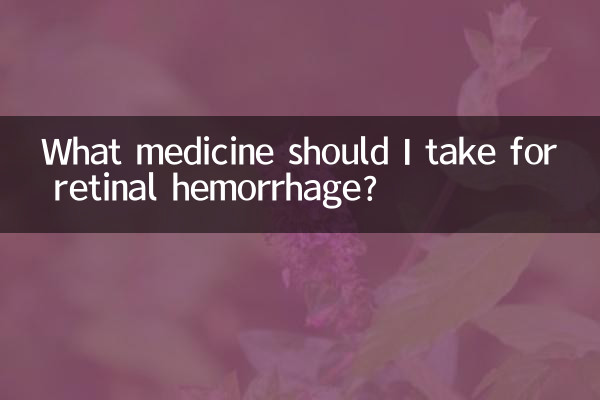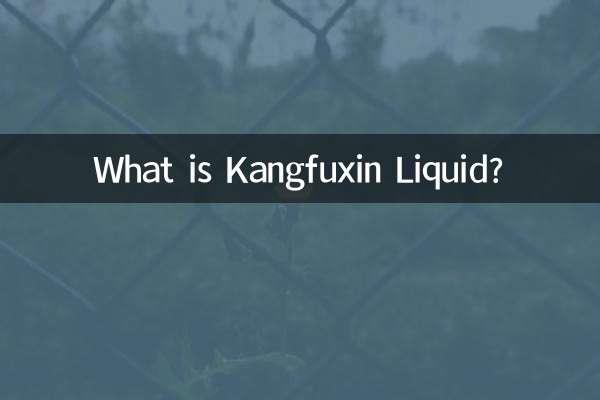What medicine should I take for retinal hemorrhage?
Retinal hemorrhage is a common eye condition that may be caused by hypertension, diabetes, trauma, or retinal vasculopathy. Recently, there has been a lot of discussion on the Internet about the treatment and medication of retinal hemorrhage, especially drug treatment options have become the focus. The following is a compilation of hot topics and hot content in the past 10 days, combined with structured data for your reference.
1. Common causes of retinal hemorrhage

There are various causes of retinal hemorrhage. The following are the causes that have been discussed more recently:
| Cause type | Proportion (recent discussion hotness) |
|---|---|
| diabetic retinopathy | 35% |
| hypertensive retinopathy | 28% |
| Trauma or eye surgery | 20% |
| Others (such as blood diseases, vasculitis) | 17% |
2. Commonly used drugs for retinal hemorrhage
According to the medical and health topic discussions in the past 10 days, the following drugs were frequently mentioned:
| Drug name | Mechanism of action | Applicable situations |
|---|---|---|
| calcium dobesilate | Improve microcirculation and reduce vascular permeability | diabetic retinopathy |
| Ginkgo leaf extract | Antioxidant, improve blood flow | Bleeding caused by high blood pressure or arteriosclerosis |
| Vitamin C/E | Protect vascular endothelium | adjuvant treatment |
| Traditional Chinese medicine for promoting blood circulation and removing blood stasis (such as Compound Xueshuantong) | Promote hematoma absorption | Bleeding stable period |
3. Recent hot topics of discussion
1.Synergy between drug therapy and laser therapy: Many ophthalmologists mentioned on social platforms that after drugs are used to control bleeding, they need to be combined with laser to treat the original disease.
2.The controversy over traditional Chinese medicine therapy: Data from a health forum show that about 42% of users believe that traditional Chinese medicine is slow to take effect, and 58% of users support the combination of traditional Chinese and Western medicine.
3.Application of new anti-VEGF drugs: Drugs such as ranibizumab were frequently mentioned in the Weibo topic #New Progress in the Treatment of Fundus Diseases.
4. Things to note (top 3 issues that users are most concerned about)
| question | Professional advice |
|---|---|
| Can I buy my own medication? | Medication must be administered after diagnosis by an ophthalmologist |
| How long does it take for the medication to take effect? | Usually 1-2 weeks, severe cases may take longer |
| Will it cause blindness? | Prognosis is good with prompt treatment. Delayed treatment may affect vision. |
5. Dietary assistance suggestions
Recommended recent nutrition topics:
| beneficial food | Reasons for recommendation |
|---|---|
| Dark vegetables (spinach, blueberries) | Rich in anthocyanins |
| deep sea fish | Omega-3 fatty acids |
| Nuts | High in Vitamin E |
Summary:The drug treatment for retinal hemorrhage needs to be selected based on the cause. Recent discussion trends show that the integration of traditional Chinese and Western medicine has attracted increasing attention. However, all medications must be strictly adhered to the doctor's instructions, and must be coordinated with the control of the primary disease and regular review. The data in this article comes from the statistics of hot topics on the medical and health platform in the past 10 days. The actual treatment plan is subject to the diagnosis of a clinician.

check the details

check the details